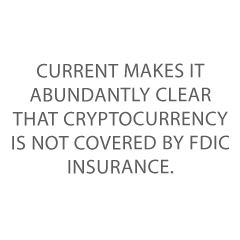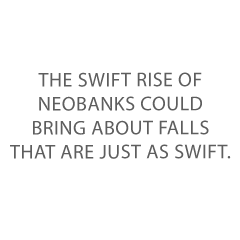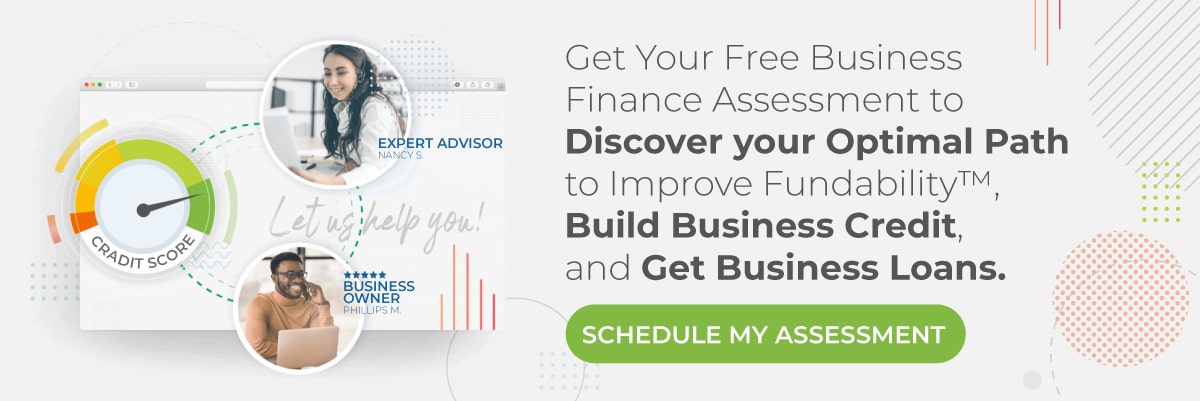You’ve probably heard this term recently, or seen it in the news. But what are neobanks and neobanking? Are neo banks a safe haven after the collapses of SVB, Signature Bank, and Credit Suisse?
Does the FDIC insure them? Are neobanks safe? Is it crypto in some form?
Let’s dive in together.
This blog post may contain affiliate links, meaning when you click the links for some products and make a purchase, Credit Suite receives a commission at no additional cost to you.
What are NeoBanks?
Forbes has an easy to read neobanks definition:
Neobanks, sometimes referred to as “challenger banks,” are fintech firms that offer apps, software and other technologies to streamline mobile and online banking. These fintechs generally specialize in particular financial products, like checking and savings accounts. They also tend to be more nimble and transparent than their megabank counterparts, even though many of them partner with such institutions to insure their financial products.
And fintech is just a portmanteau word, short for “financial technology”. It refers to things like peer to peer apps, where financial services and technology meet, and the tech is designed to make everything easier.
A fintech company is often one which mainly uses financial technology to interact with its customers. These are online banks, although many of them partner with offline financial institutions. This is pretty close to the standard neobanks meaning.
In that instance, a partner bank may be a more traditional financial institution, so working with a digital bank means that the offline bank can get the benefits of the technology without having to develop any of it.
The very slight difference between neobanks vs fintech companies is that neobanks operate solely online. But for the most part, that’s a distinction without much of an appreciable difference. Same with the terms neobank vs digital bank.
Fintech also includes a term you have probably heard of as well: cryptocurrency.
What Sorts of Services do Neobanks Offer?
The answer to this question depends on whether a neobank is full-stack or front-end.
A full-stack neobank is a standalone bank. It has its own banking license and it can operate completely independently. It does not need to rely on any incumbent banks (these are banks with brick and mortar locations) to offer any banking service.
Therefore, a full-stack neo bank can offer a full customer experience which is similar to that of traditional banks, except it is all online. This means that a full-stack can offer a savings account or other bank account, such as a neobank account for checking.
You can use such a bank for direct deposit, and potentially get access to your money more quickly. You can even get a debit card or a credit card through these types of neobanks.
Contrast this with a front-end focused neobank. Such a neobank does not have its own banking license. Hence, it must operate in partnership with either a traditional or legacy bank to provide its digital banking services to customers.
What are the Top Neobanks in the US?
These are the biggest neobanks by number of account holders. The 5 top neobanks in US are:
1. Chime
Chime has 21.6 million account holders. They offer a secured personal Visa card and savings and checking. The securing of their Visa card is done via a direct deposit to a Chime account, and not to the card itself.
You can get a credit builder card for as little as $200 directly deposited into one of your accounts.
2. Varo Bank
Varo was originally called Varo Money. It has 5.4 million account holders. Much like with Chime, you can open all the usual kinds of accounts and build your personal credit at Varo Bank.
They also offer the option for getting an advance. Start with $20 and work your way up to a maximum of $250. They will not charge you interest, but you will have to pay fees for this privilege.
3. Current
Current has 4.6 million account holders. They offer both crypto and more traditional services via Choice Financial Group. 
Current makes it abundantly clear that cryptocurrency is not covered by FDIC insurance.
If you are set up with qualifying direct depositing, they will not charge overdraft fees.
Also, you can get a better interest rate with a higher annual percentage yield (APY) than at many brick-and-mortar traditional banks.
Current will round up your purchases and deposit the remaining pennies into your savings pod account. But this is a perk offered by at least one traditional bank—Bank of America.
4. Aspiration
Aspiration leads with its commitment to providing carbon credits to businesses. They seem to mainly be going after the business customer, and they have 4.5 million account holders.
A small business can earn higher interest rates with savings through Aspiration. They offer lower fees for services such as the reversal of deposits.
They offer Aspiration Plus, which provides better interest rates but comes with a monthly fee.
There are also individual accounts for checking, a debit card, etc.
Their unique value proposition to an individual customer is their eco-friendly commitment. You can even plant a tree with every purchase, to help with saving the planet.
5. Revolut
Much like Aspiration, Revolut offers services to both a business and consumer customer. They have 4.1 million account holders.
They operate in several countries. Aside from the US, they do business in the UK (where it is considered to be a challenger bank), Australia, and other countries in Europe, Asia, and the Americas.
Unlike with traditional banking, Revolut offers an under-eighteen program whereby parents and guardians can get a spending card (works as a debit card) and savings. Adults are encouraged to open an account for their child to give them hands-on budgeting experience.
For businesses, they offer currency exchange services like traditional financial institutions do. But this online bank only offers a debit, and not a credit card for businesses.
Honorable Mention: Starling
Starling is a UK neobank with 2.2 million account holders. They do not appear to be able to do business in the United States yet.
Starling Bank is a Women in Finance chartered bank, outlining its commitment to DEI. They offer digital banking for individuals and businesses, including a financial product aimed at sole proprietors.
They practice open banking, in that they integrate directly with QuickBooks or Xero. You can even get a US dollar business account with them, making them a decent digital banking choice for American expatriates.
Will they ever get a bank charter to do full consumer and business banking within the United States? It’s hard to say. But since neobanks clearly feel that the US is fertile ground for them, Starling is probably going to at least see about doing business in the states.
Takeaways
Neo banking is here to stay, and it will most likely only get larger. Consumers and businesses alike are happy with the convenience and speed of transactions. But many neo banks have a problem turning a profit.
As a result, we will likely see a few shake ups in the industry within the next few years.
Neobanks aren’t the only place for small businesses to get financing. Contact us today to go over your options and how building Fundability™ gives you the flexibility to not have to rely on just neo banks for your accounts, business credit cards with EIN only, and business funding.
FAQ
What Sorts of Fees do Neobanks Charge?
Much like traditional banks, the companies on our neobanks list will charge fees if you don’t pay a credit card bill on time. But they do seem to waive overdraft fees often, so long as there is money on deposit with them.
Hence, unlike traditional banks, neobanks seem to take a more holistic approach to the overall use of banking products, open accounts, and money on deposit.
So, how do neobanks make money? On our list of neobanks, they make it a lot like their brick and mortar counterparts do, through fees. In this case, interchange fees.
Do Any Neo banks Break Even?
banks Break Even?
The truth is, this form of banking comes with a risk of company failures.
The best neobanks examples in terms of valuation are NuBank and Chime.
The swift rise of neobanks could bring about falls that are just as swift. Much like with their traditional counterparts, neobanks will most likely start to merge, at least for a while, particularly if two or more of them have complementary products to offer.
Who Uses Cryptocurrency?
While it may seem like it’s only a vehicle for money laundering and fraud, crypto can be a choice for lower income people and those who do not use banks. Those people were most likely to simply use it for transactions.
But for the users of crypto with $100,000 in income, cryptocurrency is an investment vehicle.
For businesses, crypto is used for simple, real time, and secure monetary transactions. In addition, as consumers (both commercial and individual) begin to use it more, businesses may start adapting it simply to allow for another means of collecting payments.

